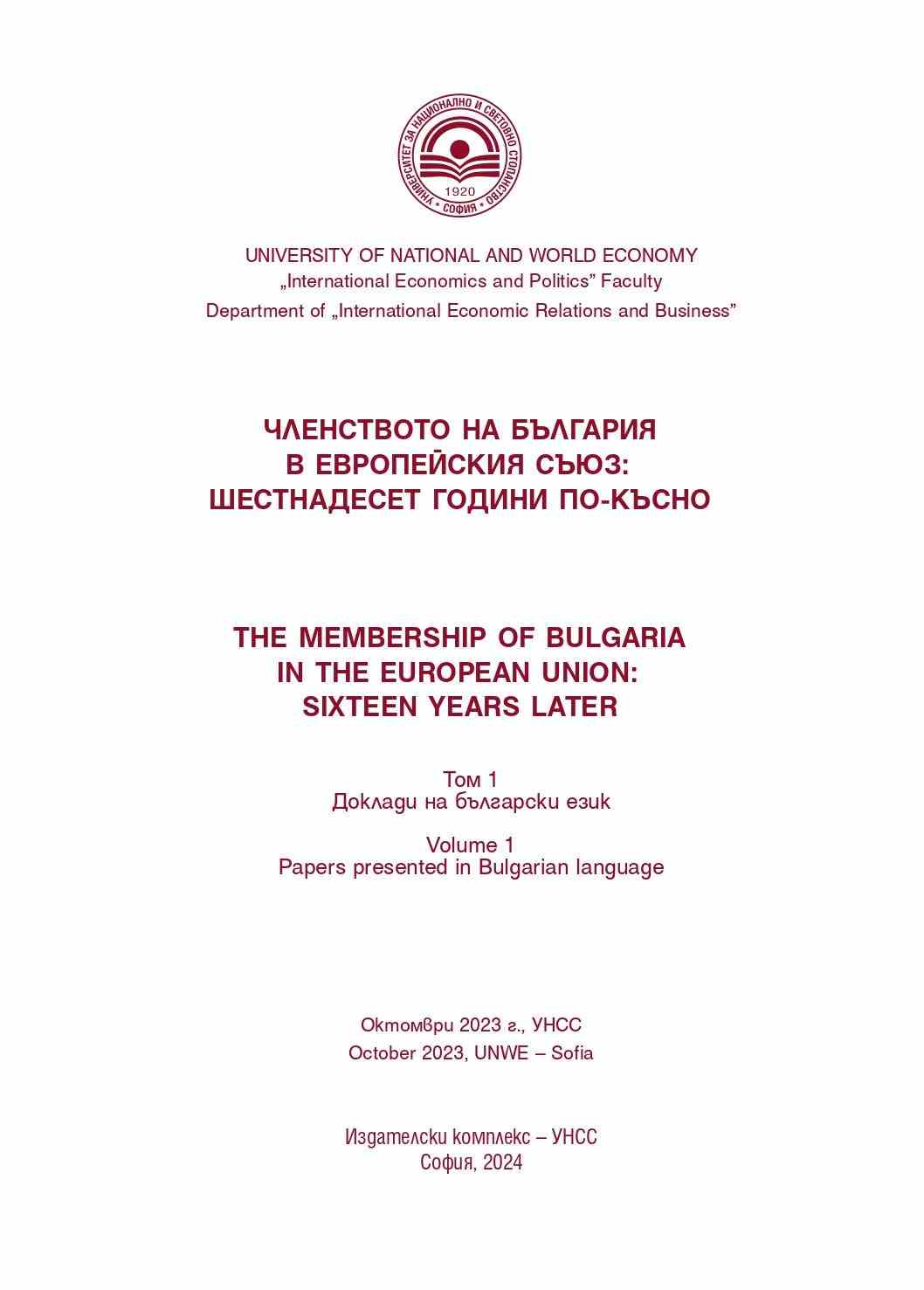Еврозоната и България – рецесия или икономически растеж
The Eurozone and Bulgaria – Recession or Economic Growth
Author(s): Vasil Petkov
Subject(s): Politics / Political Sciences, Politics, Economy, National Economy, EU-Approach / EU-Accession / EU-Development, Financial Markets, Socio-Economic Research
Published by: Университет за национално и световно стопанство (УНСС)
Keywords: Еurozone; Bulgaria; recession; economic growth
Summary/Abstract: The purpose of the study is to track the dynamics of the main macroeconomic indicators for the euro area, for selected countries in the euro area and for Bulgaria, based on empirical and statistical information for a five-year retrospective period. In this way, similarities and differences in economic development can be highlighted and cause-and-effect relationships can be explored. Despite efforts to mitigate negative external shocks, gross domestic product growth slows during 2023. The level of inflation is decreasing significantly due to the increase in interest rates, but at the expense of this, the economic activity will continue to slow down. Investment has a negligible contribution to the aggregate product, and foreign trade is shrinking. Based on the analysis of interdependencies and the peculiarities of the cyclical development of the considered economies, including Bulgaria, the most likely scenario for their short-term development is either recession or low but unstable economic growth.
Book: Членството на България в Европейския съюз: шестнадесет години по-късно
- Page Range: 7-22
- Page Count: 16
- Publication Year: 2024
- Language: Bulgarian
- Content File-PDF

